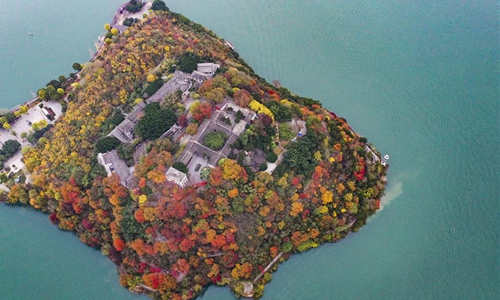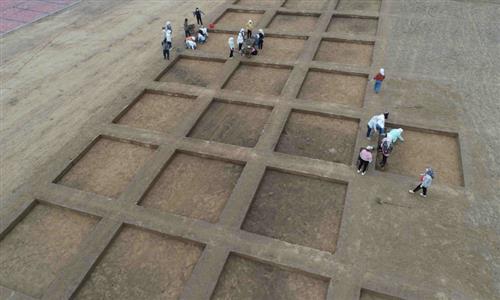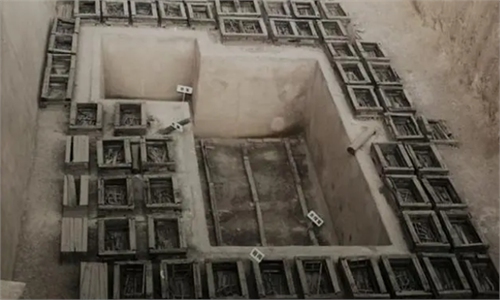ARTS / CULTURE & LEISURE
Protection efforts to restore stone tablets at 2,000-year-old Baidicheng site

The view of Baidicheng and its peripheral areas in southwest China's Chongqing Municipality (Xinhua/Wang Quanchao)
A total of 56 stone tablets are set to undergo restoration at the 2,000-year-old Baidicheng site in Fengjie county, Southwest China's Chongqing Municipality.
There are over 70 stone tablets at Baidicheng, all carved from high-quality Three Gorges stone. Among them, the oldest is a 1,400-year-old Sui Dynasty (581-618) stone tablet.
The inscriptions on the tablets have deteriorated due to human and environmental factors. To deal with this problem, restorers are looking to use desalination methods to remove harmful ions from the artifacts and effectively protect them, according to a report of China's state TV station CCTV.
Lei Tingjun, curator of the Fengjie County Baidicheng Museum, said, "Desalinating and repairing some of the heavily weathered areas is sure to reveal some missing content on the tablets."
It is expected that the restoration will take six months, ending around May 2024.
In July, to better ensure the protection of ancient stone tablets, the National Cultural Heritage Administration released the first list of ancient famous stone tablets and carvings, which included a total of 1,658 prominent artifacts. Dating from the Warring States period (475BC-221BC) to the Qing Dynasty (1644-1911), the tablets were inscribed with 20 different types of scripts.
Baidicheng, which literally means White Emperor City, is known as the City of Poems due to the large number of poets. Tang Dynasty (618-907) poet Li Bai also wrote about it in the poem Departing from Baidi in the Morning.
Another famous and talented poet, Du Fu, resided in Baidicheng for two or three years. Liu Bei, the first emperor of the Shu Han Kingdom (221-263) during the Three Kingdoms period (220-280), is said to have died in Baidicheng. However, according to Records of the Three Kingdoms, Liu died at the Yong An Gong palace. Yong An Gong was located in what is now the Normal School of Fengjie County, a few miles away from the current Baidicheng.
In 2006, the Chinese government listed Baidicheng as a national heritage site.
Global Times


